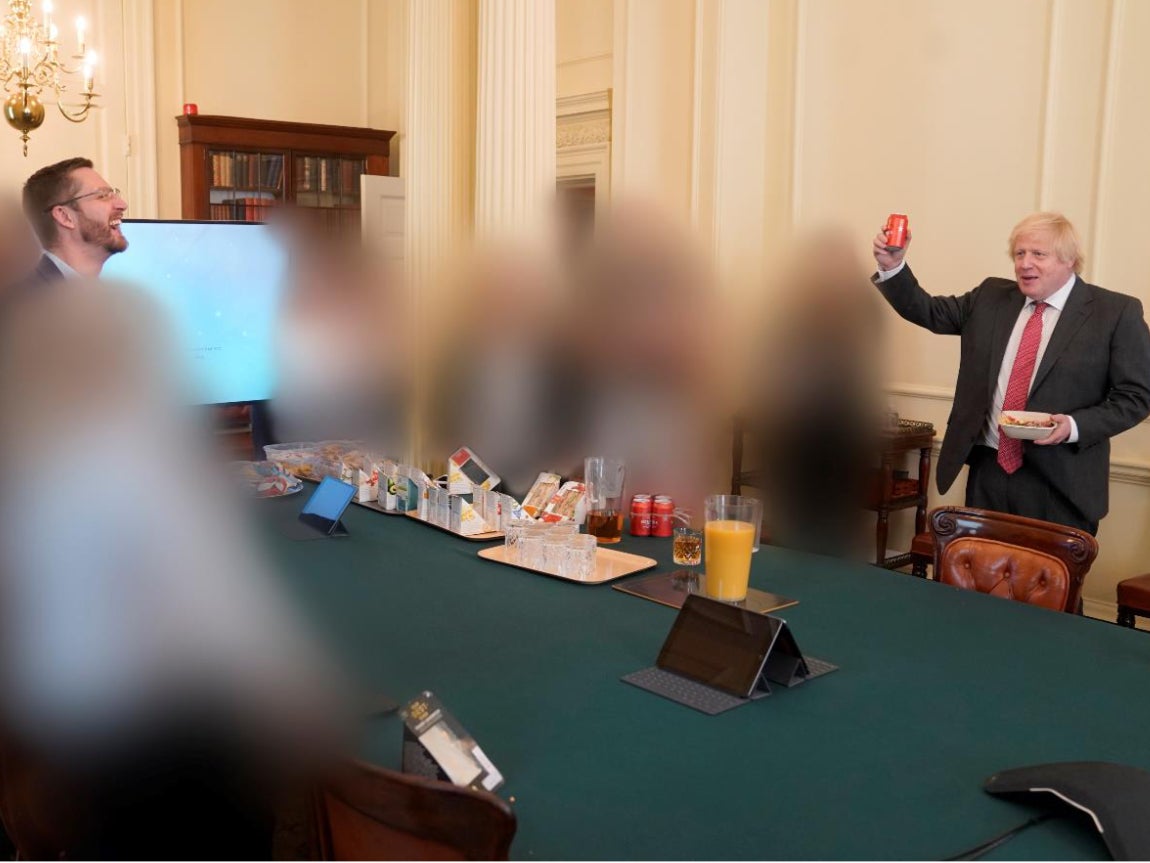Legal action launched over Met Police’s ‘failure to adequately investigate’ Boris Johnson over Partygate
Former senior Met officer Lord Paddick demands Met re-opens Partygate investigation or explains reasoning

Legal action has been launched over the Metropolitan Police’s alleged failure to “adequately investigate” Boris Johnson’s attendance at illegal Downing Street parties.
The Good Law Project has given the force two weeks to respond to its legal letter before applying for a judicial review in the High Court.
The group is representing Lord Paddick, who is a former deputy assistant commissioner of the Metropolitan Police and is now a Liberal Democrat peer in the House of Lords.
A letter published on Wednesday said the action was over the “apparent failure of the Metropolitan Police Service to adequately investigate, or investigate at all, the prime minister’s participation in three unlawful gatherings held at 10 Downing Street”.
It said the parties in question were on 13 November 2020, where photos published this week show Mr Johnson standing with staff and appearing to make a toast, and on 17 December 2020 and 14 January 2021.
The claimants believe that the prime minister was not sent a questionnaire by the Metropolitan Police in relation to the three gatherings, and said that “constitutes a failure to investigate adequately”.
They called on the Metropolitan Police to re-open the investigation or provide detailed reasons for its refusal to do so.
Scotland Yard has so far refused to comment on whether it had considered the photos published by ITV news in its investigation, and why Mr Johnson was not fined for the 13 November 2020 gathering.
The full Sue Gray report, which was published after the legal letter was sent, confirmed the prime minister’s attendance at the three gatherings in question.
It said that on 13 November 2020, he attended a gathering in the Downing Street press office to mark the departure of communications director Lee Cain, made a leaving speech and drank alcohol.
The report said the event was not pre-planned but occurred “at around the time that ‘Wine Time Friday’ would normally be taking place”.
The 17 December 2020 gathering was a “leaving event for two No 10 officials”, held after a work meeting in Downing Street.

Around 20 people gathered in the room with wine and the “prime minister attended for around 15 minutes … giving a speech thanking both officials before returning to his office for further meetings”, the report said.
The third gathering in question, on 14 January 2021, was to mark the departure of two more Downing Street officials.
The Sue Gray report said: “The prime minister attended at approximately 6pm for around 10 minutes in between meetings. He gave a short speech thanking those leaving before returning to his office.”
A spokesperson for the Good Law Project said: “Attendees at the three gatherings who received questionnaires were fined for attending them.
“We do not understand the decision to fine some attendees but not the prime minister. As we understand the law, if a gathering was prohibited it follows that all who participated in it committed an offence.
“We can see no basis for holding junior civil servants to a higher standard than the prime minister.”
The letter said that if other people had been fined for the same gatherings, they could not have been exempt from Covid laws for being “reasonably necessary for work” and anyone participating without reasonable excuse would have committed an offence.
It argued the decision not to send questionnaires to the prime minister over his attendance would be unlawful and legally “irrational”.
Downing Street staff have told The Independent of their anger over the prime minister receiving only one fixed penalty notice, over his birthday party, when he attended several events.
“It’s a joke,” one No 10 source said. “He told people to ‘let their hair down’ and enjoy their drinks which they’d earned for ‘beating back the virus’.”

They said the prime minister had participated in socialising with officials and advisers in a manner that had been regarded as an endorsement of partying after work.
There have also been allegations that Covid breaches by Downing Street staff were treated more leniently than those by the general public because of the way Scotland Yard carried out its investigation.
It identified suspects after carefully wading through piles of evidence, and created bespoke questionnaires for them to answer in writing, after receiving legal advice if wanted.
Scotland Yard said it only issued fines if they “had the necessary evidence to prosecute at court, were it not paid”.
Police across the country had a policy against retrospective Covid investigations throughout the pandemic, meaning that the vast majority of fines were handed out on the spot by police officers.
That meant that people were frequently issued with penalties without formal evidence gathering or interviews, and had to risk prosecution in order to contest them.
Kirsty Brimelow QC, a criminal law and human rights barrister who has represented people fighting Covid fines, told The Independent that “reasonable excuses” for breaking gathering laws were rarely considered at the stage a fine was issued.
“FPNs would be issued if there was as reasonable belief of a breach, rather than having all the evidence ship-shape if it went to court,” she added.
“The Met has applied the regulations, but – from reading their statement – they appear to have applied them in a way which is setting the police a higher bar before issuing a FPN. That actually is good news for those investigated at Downing Street. But it is in contrast to enforcement being applied to the general public.”
The £460,000 investigation, codenamed Operation Hillman, ended with 126 fines being given to 83 people over gatherings between May 2020 and April 2021. The Metropolitan Police declined to comment.






Join our commenting forum
Join thought-provoking conversations, follow other Independent readers and see their replies
Comments